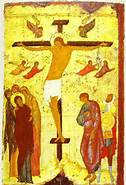As soon as you use the word “should” . . .
. . . you assume a standard, a system of morality.
Beliefs
 Moral philosophy, also known as “social ethics,” seeks answers to the question “What is right and wrong?” Supposed synonymous words (morals, values, ethics, or beliefs) often assume that correct behavior arises from community codes of conduct. The Christian viewpoint is quite distinctive. Christian views of social ethics necessarily distinguish “values” and “morals” from “ethics” and “beliefs.” What some consider to be “normal” (values) or “acceptable” (morals) in any given culture may indeed be right or wrong in another culture. By contrast, “ethics” implies “should” and “ought” which in turn assumes a standard outside the community. “Beliefs” for the Christian embeds sociology within theology.
Moral philosophy, also known as “social ethics,” seeks answers to the question “What is right and wrong?” Supposed synonymous words (morals, values, ethics, or beliefs) often assume that correct behavior arises from community codes of conduct. The Christian viewpoint is quite distinctive. Christian views of social ethics necessarily distinguish “values” and “morals” from “ethics” and “beliefs.” What some consider to be “normal” (values) or “acceptable” (morals) in any given culture may indeed be right or wrong in another culture. By contrast, “ethics” implies “should” and “ought” which in turn assumes a standard outside the community. “Beliefs” for the Christian embeds sociology within theology.
 Only three possible standards or sources exist for how one should live in any culture: (1) individual desire, (2) community design, or (3) transcendent declaration. Individuals, separated from the ethical framework or social fellowship of others exercise their autonomy to the betterment or detriment of others; the standards for “betterment” and “detriment” left to one’s own choices. Communities may have what others consider to beneficent, altruistic motives but also depend on what is acceptable for the group even when harm could come to other groups because of the first group’s actions. Further complications arise from tyrannical or totalitarian leadership within a community where one or a few set standards demanding compliance through fear from the whole community. Transcendent standards, most often originating from holy books or prophetic utterance, can be manipulated by human interpreters for the interpreter’s own interests. However, without a supernatural code by which a society commits itself, autonomous human ethics reign supreme.
Only three possible standards or sources exist for how one should live in any culture: (1) individual desire, (2) community design, or (3) transcendent declaration. Individuals, separated from the ethical framework or social fellowship of others exercise their autonomy to the betterment or detriment of others; the standards for “betterment” and “detriment” left to one’s own choices. Communities may have what others consider to beneficent, altruistic motives but also depend on what is acceptable for the group even when harm could come to other groups because of the first group’s actions. Further complications arise from tyrannical or totalitarian leadership within a community where one or a few set standards demanding compliance through fear from the whole community. Transcendent standards, most often originating from holy books or prophetic utterance, can be manipulated by human interpreters for the interpreter’s own interests. However, without a supernatural code by which a society commits itself, autonomous human ethics reign supreme.
 In a fallen world, the best hope for community compliance is commitment to a cogent code given from a personal, eternal, triune creator, the Hebrew-Christian God of the Bible. Social ethics, from a Hebraic-Christian point of view, demands the following.
In a fallen world, the best hope for community compliance is commitment to a cogent code given from a personal, eternal, triune creator, the Hebrew-Christian God of the Bible. Social ethics, from a Hebraic-Christian point of view, demands the following.
(1) A righteous, revelatory standard founded in the Bible (Ps 119; 1 Thess 4:1-12),
(2) a transformed spirit, affecting the being, the interiority of the believer (Ps 19:13-14; Rom 8:5-9),
(3) Christian leaders who submit themselves to the standard in word, attitude, and deed (2 Kgs 23:24-25; 1 Tim 3; Titus 1),
(4) Christian leaders who prompt the Christian church toward the practice of Christian ethics (Ps 15; Heb 10:24; 13:1-7, 17);
(5) Christians who practice Christian ethics in the society where they live (Deut 4:5-8; Titus 2:1-10);
(6) social ethics in lived society are influenced by Christian social ethics (Jer 29:1-7; 1 Tim 1:8-11).
 The results of Christian social ethics in society begin with Old Testament teaching and should always produce
The results of Christian social ethics in society begin with Old Testament teaching and should always produce
(1) equality of commitment to all people being made in God’s image (Gen 1:26-27),
(2) equitable rewards which benefit all people (Ps 107),
(3) standards of justice applied to all (Is 58-59), and
(4) a sense that preparation for the next life depends on how this life is lived (Ps 73).
Practices
 The practice of beneficence toward others is what it means to practice one’s Christian faith (Titus 3:1, 8, 14). The church often took care of its own (Acts 4:32-37).
The practice of beneficence toward others is what it means to practice one’s Christian faith (Titus 3:1, 8, 14). The church often took care of its own (Acts 4:32-37).
There was no limitation on belief: all should be cared for (Gal 6:9-10).
There was no limitation on time: doing good can seem to be an unending task(Gal 6:9; 2 Thess 3:13).
There was no limitation on effort: continued service is the expectation (John 9:4; 1 Cor 15.58; Gal 6:9; 2 Thess 3:13).
There was no limitation on result: doing good was not in vain (1 Co 4:5; 15:58; 2 Jn 8).
 The Christian does not do good for their salvation but because of their salvation (Eph 2:8-10; 4:24; Col 1:10). Works of service to others originate first from God (John 15:5-6; Phil 1:11; Col 1:6).
The Christian does not do good for their salvation but because of their salvation (Eph 2:8-10; 4:24; Col 1:10). Works of service to others originate first from God (John 15:5-6; Phil 1:11; Col 1:6).
 Doing good, however, can be misconstrued. Some substitute good works for salvation from sin which can only be given by God through His grace (Gal 1:15; 2:16; 3:11-14). Some do good out of anticipation of earthly reward, whether through gain or glory (Acts 8:18-19; Phil 1:17-19). Still others do good out of a sincere faith but do not realize its negative impact on the populace served. Books such as When Helping Hurts warn that material needs cannot be separated from immaterial beliefs. The Spiritual Danger of Doing Good petitions believers that their good works may be susceptible to imperceptible motivations and unintended consequences.
Doing good, however, can be misconstrued. Some substitute good works for salvation from sin which can only be given by God through His grace (Gal 1:15; 2:16; 3:11-14). Some do good out of anticipation of earthly reward, whether through gain or glory (Acts 8:18-19; Phil 1:17-19). Still others do good out of a sincere faith but do not realize its negative impact on the populace served. Books such as When Helping Hurts warn that material needs cannot be separated from immaterial beliefs. The Spiritual Danger of Doing Good petitions believers that their good works may be susceptible to imperceptible motivations and unintended consequences.
 The essence of social ethics, like everything else in life, can fall prey to a disillusionment or disconnection from the original purpose for the believer: to glorify God in all things (Ps 115:1; Col 3:23), acknowledging Him as the source of any competence (2 Co 3:5; 4:5). Loving one’s neighbor because one loves God is the essence of what it means to be a Christian (Gal 5:14; c.f. Lev 19:18; Matt 19:19; John 13:34).
The essence of social ethics, like everything else in life, can fall prey to a disillusionment or disconnection from the original purpose for the believer: to glorify God in all things (Ps 115:1; Col 3:23), acknowledging Him as the source of any competence (2 Co 3:5; 4:5). Loving one’s neighbor because one loves God is the essence of what it means to be a Christian (Gal 5:14; c.f. Lev 19:18; Matt 19:19; John 13:34).
 Books such as Stephen Mansfield’s In Search of God and Guinness demonstrate the personal commitment and communal impact a thoroughly Christian mindset can have on social ethics in business practices which immediately impact individuals and institutions. [My review.] Kingdom Calling, by Amy L. Sherman, gives a myriad of examples from every conceivable vocation of how the practice of Christian social ethics produces justice and brings mercy to any neighborhood. [My review.]
Books such as Stephen Mansfield’s In Search of God and Guinness demonstrate the personal commitment and communal impact a thoroughly Christian mindset can have on social ethics in business practices which immediately impact individuals and institutions. [My review.] Kingdom Calling, by Amy L. Sherman, gives a myriad of examples from every conceivable vocation of how the practice of Christian social ethics produces justice and brings mercy to any neighborhood. [My review.]
 Inspirational stories, as identified in books like William Bennett’s The Book of Virtues, can motivate toward goodness. But good examples cannot be simply applied from the outside without internal change, key tenet of Christian ethics (Eph 4; Col 3).
Inspirational stories, as identified in books like William Bennett’s The Book of Virtues, can motivate toward goodness. But good examples cannot be simply applied from the outside without internal change, key tenet of Christian ethics (Eph 4; Col 3).
 Rodney Stark’s The Rise of Christianity shows the historic impact of Christian social ethics on the Roman culture. Before his own conversion to the gospel, Stark researched how the believing community in Rome impacted the city. The practice of ministering physical care through epidemics made the gospel of Jesus attractive. In books that followed, Stark showed how Christian thinking-being-living had a direct impact on social good. The earliest Christian apologists—Justin Martyr, Tertullian, Ignatius of Antioch—defended Christians to Roman persecutors with this dictum: Christians provided Rome with the best citizens, because Christians contributed to the social good of the empire. Christian ethics were built on Christian belief that right and wrong have a transcendent source in the Hebraic-Christian God, Yahweh, revealed in His Son, Jesus.
Rodney Stark’s The Rise of Christianity shows the historic impact of Christian social ethics on the Roman culture. Before his own conversion to the gospel, Stark researched how the believing community in Rome impacted the city. The practice of ministering physical care through epidemics made the gospel of Jesus attractive. In books that followed, Stark showed how Christian thinking-being-living had a direct impact on social good. The earliest Christian apologists—Justin Martyr, Tertullian, Ignatius of Antioch—defended Christians to Roman persecutors with this dictum: Christians provided Rome with the best citizens, because Christians contributed to the social good of the empire. Christian ethics were built on Christian belief that right and wrong have a transcendent source in the Hebraic-Christian God, Yahweh, revealed in His Son, Jesus.
 “Social Ethics” © is one of 22 articles included in History of Christianity in the United States (Rowman & Littlefield, 2016) by Dr. Mark Eckel. Mark is President of The Comenius Institute (one minute video here). Picture credit: Snappygoat.com
“Social Ethics” © is one of 22 articles included in History of Christianity in the United States (Rowman & Littlefield, 2016) by Dr. Mark Eckel. Mark is President of The Comenius Institute (one minute video here). Picture credit: Snappygoat.com
Resources & References
Bennett, William J. The Book of Virtues: A Treasury of Great Moral Stories. New York, NY: Simon & Schuster, 1996.
Bonheoffer, Dietrich. Ethics, 1st ed. New York, NY: Touchstone Publishing, 1995.
Coles, Robert. The Call of Stories: Teaching and Moral Imagination. Boston, MA: Houghton Mifflin, 1990
Greer, Peter and Anna Haggard. The Spiritual Danger of Doing Good. Minneapolis, MN: Bethany House, 2013.
Corbett and Fikkert When Helping Hurts: How to Alleviate Poverty without Hurting the Poor . . . and Yourself. Chicago, IL: Moody, 2012.
Kreeft, Peter. Back to Virtue: Traditional Moral Wisdom for Modern Moral Confusion. San Francisco, CA: Ignatius, 1992.
MacIntyre, Alasdair. After Virtue: A Study in Moral Theory, 3rd ed. South Bend, IN: University of Notre Dame Press, 2007.
Mansfield, Stephen. In Search of God and Guinness: A Biography of a Beer that Changed the World. Nashville, TN: Thomas Nelson, 2009.
Sherman, Amy. Kingdom Calling: Vocational Stewardship for the Common Good. Downers Grove: InterVarsity Press, 2011.
Stark, Rodney. The Rise of Christianity: How the Obscure, Marginal Jesus Movement Became the Dominant Religious Force in the Western World in a Few Centuries. San Francisco, CA: Harper Collins, 1997.


